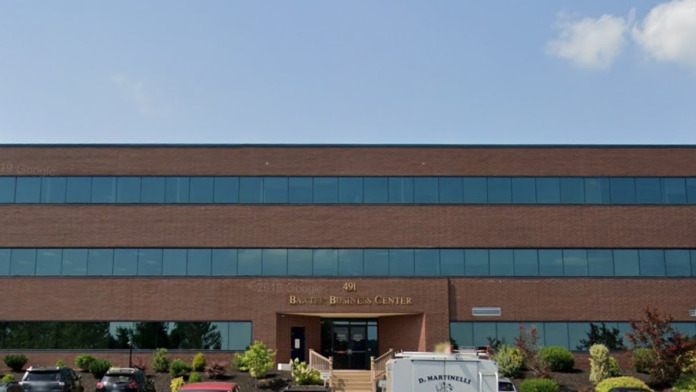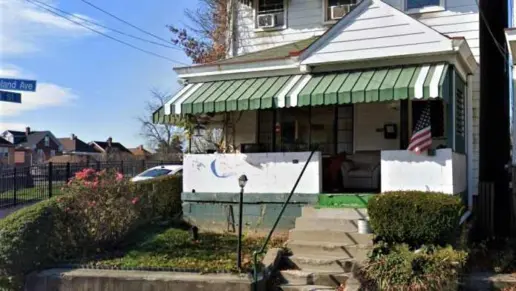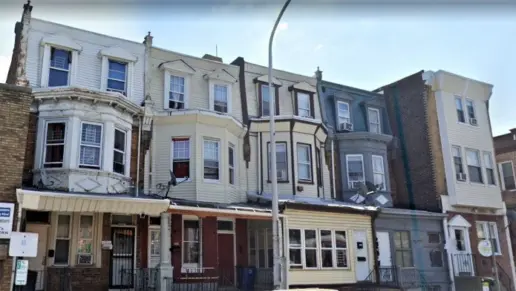About Rehab After Work
Specialty rehab programs at Rehab After Work include tailored care focusing on women's specific needs and experiences, gender-specific addiction treatment addressing unique challenges faced by men, and age-appropriate treatment for teens addressing adolescent-specific issues.
For recreation, patients can use the yoga studio to work on active mindfulness and improve flexibility, foster creativity and jam with other patients in the music room, or use the meditation room to promote mindfulness during recovery.
Rehab After Work has received accreditations from CARF.
Latest Reviews
Rehab Score
Gallery

Location
Accepted Insurance
Other Forms of Payment
Private insurance refers to any kind of healthcare coverage that isn't from the state or federal government. This includes individual and family plans offered by an employer or purchased from the Insurance Marketplace. Every plan will have different requirements and out of pocket costs so be sure to get the full details before you start treatment.
Self-pay involves paying for treatment out of your own pocket. You can use savings or credit, get a personal loan, or receive help from family and friends to fund your treatment. If you don't have insurance or your insurance plan doesn't cover a specific program, self-pay can help ensure you still get the care you need.
Addiction Treatments
Levels of Care
Treatments
The goal of treatment for alcoholism is abstinence. Those with poor social support, poor motivation, or psychiatric disorders tend to relapse within a few years of treatment. For these people, success is measured by longer periods of abstinence, reduced use of alcohol, better health, and improved social functioning. Recovery and Maintenance are usually based on 12 step programs and AA meetings.
Drug rehab in Pennsylvania is devoted to the treatment of addiction. Levels of care, treatment methods, and settings differ, but the aim of each program is to end drug dependency and empower participants to achieve long-term recovery.
Many of those suffering from addiction also suffer from mental or emotional illnesses like schizophrenia, bipolar disorder, depression, or anxiety disorders. Rehab and other substance abuse facilities treating those with a dual diagnosis or co-occurring disorder administer psychiatric treatment to address the person's mental health issue in addition to drug and alcohol rehabilitation.
A combined mental health and substance abuse rehab has the staff and resources available to handle individuals with both mental health and substance abuse issues. It can be challenging to determine where a specific symptom stems from (a mental health issue or an issue related to substance abuse), so mental health and substance abuse professionals are helpful in detangling symptoms and keeping treatment on track.
Opioid rehabs specialize in supporting those recovering from opioid addiction. They treat those suffering from addiction to illegal opioids like heroin, as well as prescription drugs like oxycodone. These centers typically combine both physical as well as mental and emotional support to help stop addiction. Physical support often includes medical detox and subsequent medical support (including medication), and mental support includes in-depth therapy to address the underlying causes of addiction.
Programs


Clinical Services
Cognitive Behavioral Therapy (CBT) is a therapy modality that focuses on the relationship between one's thoughts, feelings, and behaviors. It is used to establish and allow for healthy responses to thoughts and feelings (instead of unhealthy responses, like using drugs or alcohol). CBT has been proven effective for recovering addicts of all kinds, and is used to strengthen a patient's own self-awareness and ability to self-regulate. CBT allows individuals to monitor their own emotional state, become more adept at communicating with others, and manage stress without needing to engage in substance abuse.
Couples therapy helps clients recognize negative thoughts and behavioral patterns that contribute to the struggles they are experiencing. Clinicians will encourage the couple to focus on strengths in the marriage, while helping them improve both communication skills and listening skills.
Creativity is inherently healing, and can help those in recovery express thoughts or feelings they might not otherwise be able to. Creative arts therapy can include music, poetry/writing, painting, sculpting, dance, theater, sandplay, and more. Unlike traditional art, the final product matters far less than the experience of creation and expression itself.
Dialectical Behavior Therapy (DBT) is a modified form of Cognitive Behavioral Therapy (CBT), a treatment designed to help people understand and ultimately affect the relationship between their thoughts, feelings, and behaviors. DBT is often used for individuals who struggle with self-harm behaviors, such as self-mutilation (cutting) and suicidal thoughts, urges, or attempts. It has been proven clinically effective for those who struggle with out-of-control emotions and mental health illnesses like Borderline Personality Disorder.
Seeds of Hope is an Intensive Outpatient Program specializing in the treatment of eating disorders and offering support and direction for individuals in crisis or struggling to function on a regular basis. It is often an alternative to inpatient hospitalization or can be a transition for individuals being discharged from an inpatient stay. They treat clients in the least restrictive environment which allows many to maintain their daily lives and routines. Clients are supported in group settings by using a multi-modal approach consisting of Process Group Therapy, Expressive Art Therapy and Educational Nutrition Therapy.
Family members, parents, and/or support persons are required to be involved in the individual’s treatment and are counseled as well to help their loved ones succeed. In addition to their family outpatient therapy offered as part of the IOP, family therapy sessions are provided as individualized family therapy for the specific client and their family members. These appointments will be made as requested by the client, family, or counselor during the day or evening hours. Family therapy appointments can be made for any type of family members, eg. parents and child, spouses, or loved ones.
GroGroup therapy is any therapeutic work that happens in a group (not one-on-one). There are a number of different group therapy modalities, including support groups, experiential therapy, psycho-education, and more. Group therapy involves treatment as well as processing interaction between group members. Groups are kept to an average of 8 members so all individuals get the focus needed for successful outpatient therapy.
Individuals can seek individual outpatient addiction treatment therapy sessions at any time during the program. Clients are assigned a counselor and develop a needs-specific treatment plan. The frequency of visits per week will vary based on the individual’s needs. Appointments can be scheduled either during the day or in the evening.
Motivational Interviewing (MI) is a clinical approach to helping people with substance abuse issues and other conditions shift behavior in positive ways. It is more goal-oriented than traditional psychotherapy, as MI counselors directly attempt to get clients to consider making behavioral change (rather than wait for them to come to conclusions themselves). Its primary purpose is to resolve ambivalence and help clients become able to make healthy choices freely.
Nutrition therapy, aka medical nutrition therapy (MNT), is a way of treating physical, emotional, and medical conditions through diet. Specific dietary plans are designed by professional nutritionists or registered dietitians, and patients follow them in order to positively affect their physical and mental health.
Sound therapy (aka sound healing or vibrational medicine) uses sonic vibrations to stimulate healing at the cellular level. Vibrations, either from the human voice or resonant objects like tuning forks, gongs, or Tibetan bowls, affect cellular resonance in the body, which can help heal the impact of anxiety, depression, trauma, and more.
Clinicians providing trauma therapy help clients recognize and identify how emotional and behavioral symptoms, such as flashbacks, guilt, shame, substance abuse, and a feeling of being overwhelmed, may be connected to a traumatic experience in their life. Subsequently, the clinicians helps the client identify positive coping skills, intentionally change thoughts and actions, develop strategies to reduce reactivity to the traumatic stressor(s).
Amenities
-
Private Setting
-
Yoga Studio
Staff & Accreditations
Staff

Vice President of Operations

Regional Director

Director of Development and Special Projects

Executive Director of Pottstown

Executive Director of Exton

Executive Director of Jenkintown

Executive Director of Havertown and Radnor

Regional Director
Accreditations

The Commission on Accreditation of Rehabilitation Facilities (CARF) is a non-profit organization that specifically accredits rehab organizations. Founded in 1966, CARF's, mission is to help service providers like rehab facilities maintain high standards of care.
CARF Accreditation: Yes
Contact Information
491 John Young Way
Suite 300
Exton, PA 19341







